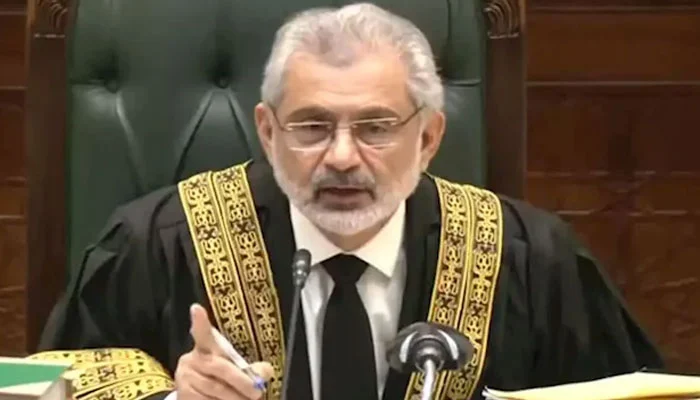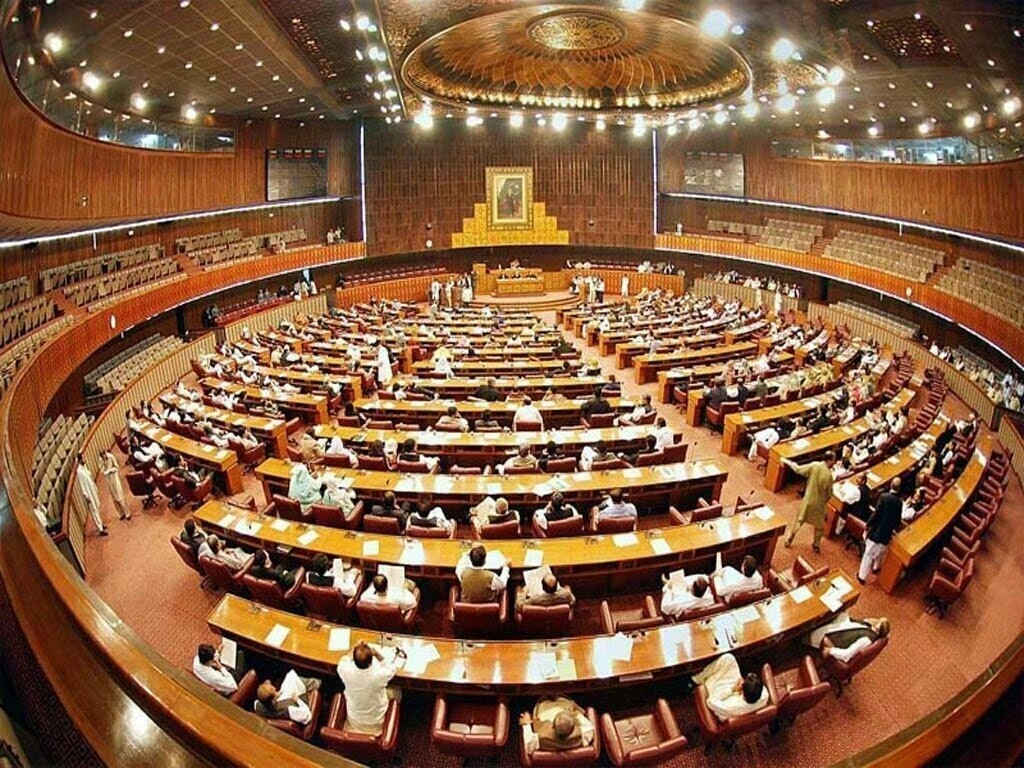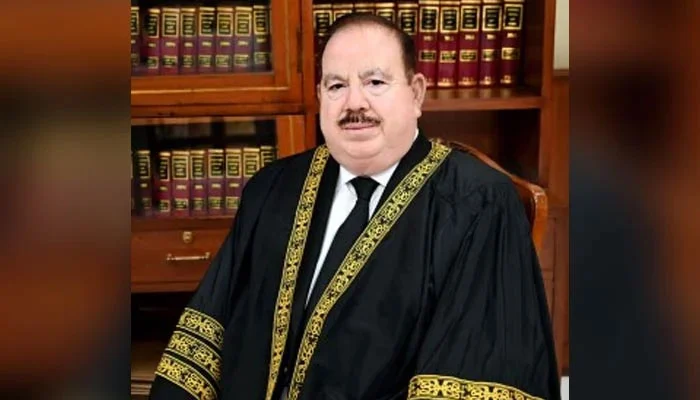During the proceedings of the Faizabad dharna case in the Supreme Court of Pakistan, Chief Justice Khosa made a notable remark regarding the presidential status of General Zia-ul-Haq. The case pertained to the Faizabad sit-in, which took place in 2017, and the subsequent inquiry into the matter.
The Attorney General informed the court that General Zia-ul-Haq’s name was excluded from the Constitution during the 18th amendment. This amendment altered the country’s foundational legal document and had far-reaching implications.
However, it was during the arguments of Ijaz-ul-Haq’s lawyer, who is the son of General Zia-ul-Haq, that the question of his father’s presidency was raised. Ijaz-ul-Haq’s counsel clarified that their request did not pertain to revisiting the verdict but only to have the name removed from the judgment.
In response to this assertion, Chief Justice Khosa delved into a brief yet impactful dialogue. He pointed out that Ijaz-ul-Haq is the son of former Army Chief General Zia-ul-Haq and noted that Ijaz’s father had served as the President of Pakistan.
To this, Ijaz-ul-Haq’s lawyer mentioned that his client’s father, General Zia-ul-Haq, was not only the President but also the Chief Martial Law Administrator.
In a noteworthy remark, Chief Justice Khosa expressed that he did not consider Zia-ul-Haq as a President. He emphasized that one does not become a President with a gun to their head, referring to the military coup that brought General Zia to power. The Chief Justice humorously noted that in the future, he might refer to Zia as the President once again during court proceedings.
The lawyer representing Ijaz-ul-Haq argued that General Zia-ul-Haq had served as the President according to the Constitution. He insisted that the Constitution acknowledged General Zia-ul-Haq’s presidency.
Chief Justice Khosa rebutted by saying that General Zia-ul-Haq was the only person whose name appeared in the Constitution, suggesting that while the time of the alteration could not be ascertained, it was indeed General Zia who had claimed the presidency. However, the Chief Justice questioned whether the full five-year term had been completed, hinting at the abrupt end of Zia’s presidency.
The exchange between the court and Ijaz-ul-Haq’s lawyer highlighted a peculiar aspect of Pakistan’s history and politics. General Zia-ul-Haq’s rule, which lasted from 1977 until his death in 1988, was marked by a military coup that ousted the democratically elected government of Prime Minister Zulfikar Ali Bhutto. After taking power, Zia declared martial law, suspended the Constitution, and appointed himself Chief Martial Law Administrator. Over the years, Zia’s rule was characterized by significant political and constitutional changes.
This incident within the court proceedings serves as a reminder of Pakistan’s complex political history and the unique role that military leaders have played in the country’s governance. It also reflects the ongoing debate surrounding the status of historical figures in Pakistan’s political and constitutional narrative.
While the discussion about whether General Zia-ul-Haq was a President or Chief Martial Law Administrator may appear to be a matter of historical semantics, it underscores the nuances and complexities of Pakistan’s political landscape. Decades after his rule, General Zia-ul-Haq’s legacy continues to be a topic of debate and discussion, both within the legal arena and among the wider public.
Chief Justice Khosa’s remark during the Faizabad dharna case hearing offers a glimpse into the intricate relationship between Pakistan’s legal system and its historical and political context. The debate about the status of figures like General Zia-ul-Haq not only shapes legal proceedings but also reflects broader discussions about the country’s history and governance.



